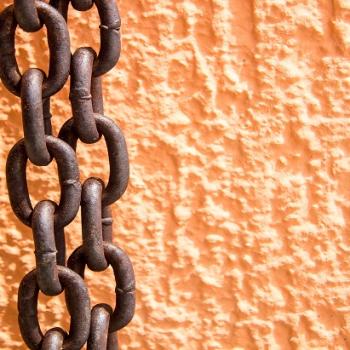David and Jonathan’s story in 1 Samuel is one of my favorite Bible passages. It’s always fascinated me that Jonathan, the eldest son of King Saul, immediately felt united with David when they first met. Jonathan refused to comply with his father’s malice against David and made a covenant with him that would span lifetimes.
First Meeting
David and Jonathan first meet each other after David kills Goliath in 1 Samuel 18. The text is fascinating here! 1 Samuel 18:1-4 gives us poetic details about what happened when Jonathan laid eyes on David:
“After David had finished talking with Saul, Jonathan became one in spirit with David, and he loved him as himself. From that day Saul kept David with him and did not let him return home to his family. And Jonathan made a covenant with David because he loved him as himself. Jonathan took off the robe he was wearing and gave it to David, along with his tunic, and even his sword, his bow and his belt.” (1 Samuel 18:1-4)
I think what the text is saying here, regarding Jonathan giving David his clothing, was that Jonathan recognized David as the future king. Those were likely Jonathan’s royal garments, a symbol of his royalty.
I’ve done some fun research, and it looks like “friendship at first sight” is an actual thing! There’s scientific support for what Jonathan experienced when we first saw David. That’s so wholesome!
Saul’s Rage
This is such an uncomfortable part of 1 Samuel to read. King Saul despised David out of fear and jealousy. There were numerous occasions where Saul tried to kill David, despite the lad having done nothing against him.
What makes this so icky is that Saul promised Jonathan that he wouldn’t harm David:
“Saul listened to Jonathan and took this oath: ‘As surely as the Lord lives, David will not be put to death.'” (1 Samuel 19:6)
Unfortunately, this promise didn’t last.
In just the next paragraph of the text, it states that Saul tried to kill David with his spear (1 Samuel 19:10). David had to flee for his life, and Jonathan was understandably horrified by his father’s rage.
The two friends agreed to a plan to test whether or not Saul’s murderous wrath had dissipated. David refused to participate in the New Moon feast where everybody would expect him to show up. Based on his father’s response to the absence, Jonathan would see for himself whether or not Saul still wanted David dead.
The plan worked.
“Saul’s anger flared up at Jonathan and he said to him, ‘You son of a perverse and rebellious woman! Don’t I know that you have sided with the son of Jesse to your own shame and to the shame of the mother who bore you? As long as the son of Jesse lives on this earth, neither you nor your kingdom will be established. Now send someone to bring him to me, for he must die!’
‘Why should he be put to death? What has he done?’ Jonathan asked his father. But Saul hurled his spear at him to kill him. Then Jonathan knew that his father intended to kill David.” (1 Samuel 20:30-33)
David and Jonathan Part Ways
There was no longer any doubt that Saul had revoked his promise and forsaken his honor. David’s absence had done nothing to quell the malice in the king’s heart.
Jonathan went to the fields and gave the signal for David to come forward. David obliged, bowed before his friend, and the two of them wept profusely.
This would be the last time David and Jonathan would see each other. They told each other to “go in peace” and that their covenant would last forever (1 Samuel 20:42).
Jonathan saved David’s life from being destroyed at the hands of his father. Saul would waste his days afterward seeking David’s death, which would lead to tragedies including the slaughter of Nob.
David’s Lament
War was a constant plague in this era, and it claimed Jonathan’s life during a battle with the Philistines (1 Samuel 31:2). The enemy archers badly wounded Saul, and he knew his army had lost. After his armor-bearer refused his request to kill him honorably, Saul killed himself with his own sword (1 Samuel 31:4).
How did David react when he heard of Saul’s death? He tore his clothes apart and wept over his loss.
Researchers have noted that tearing one’s clothing is a recurring symbol of anguish in the Bible. This tells us just how heartbroken David was over Saul’s death. Even though Saul was hands-down David’s greatest enemy, David’s heart of mercy was shown in his immense grief.
David Mourns Jonathan
David speaks touching words during his lament in honor of Jonathan, his greatest friend:
“I grieve for you, Jonathan my brother; you were very dear to me. Your love for me was wonderful, more wonderful than that of women.” (2 Samuel 1:26)
Jonathan loved David selflessly and did much to protect his friend from Saul’s wrath. After all they’d endured together, I can only imagine how devasting his loss was for David.
Mephibosheth, Jonathan’s Crippled Son
David remained true to his promise to Jonathan after his friend’s death. When David learned that Jonathan had a son, Mephibosheth, David took him in and protected him.
When they said farewell to each other, David and Jonathan promised that their families would be intertwined. Not only that, but David refused to end Saul’s bloodline, another act that showed his merciful heart.
2 Samuel 9 goes into detail about how far David went with his kindness towards Mephibosheth. David gave Jonathan’s son a place at the royal table and gave him the land Saul formerly owned. Jonathan’s trust in David was well-placed.
What Kind of Love Was This?
There’s been so much debate on the nature of David and Jonathan’s love for each other. I suppose you could split the discussion with this question: were they platonic soulmates or romantic soulmates?
It’s hard for me to say where I stand on this debate, even as a gay Christian. My theory is that it’s possible for one of them to have been bisexual/biromantic. Possibly.
I’d lead more towards biromantic than anything else. That’s my inference, and I’m prepared to be wrong.
Analyzing a Kiss
A big point of contention on either end of this debate is 1 Samuel 20:41, the “kissing verse”. This is another part of the Bible where I wish we had more on-hand context. From what I can tell, this was simply a reflection of cultural greeting norms.
Even for those of us who surmise that it’s at least possible for David and Jonathan to have romantically loved each other, I would caution against using this verse as proof. After doing some light research, I think their kiss in 1 Samuel 20:41 was simply a heartfelt greeting between them.
That being said, I also take issue with how this verse has been handled on the other side of the debate. I use Bible Hub to analyze how different versions of the Bible interpret specific passages. When I looked up 1 Samuel 20:41 here, I saw some key differences.
For example, here’s a comparison between the NIV and NLT versions of this verse:
The NIV version:
“Then they kissed each other and wept together—but David wept the most.” (1 Samuel 20:41)
Here’s the NLT version (bolded for emphasis):
“Both of them were in tears as they embraced each other and said good-bye, especially David.” (1 Samuel 20:41)
From what I’ve seen on Bible Hub‘s list of interpretations, the NLT is the only one to say they “embraced”. I don’t understand why. It would be easy for me to suggest some level of homophobia in this interpretation.
While I don’t think David and Jonathan “made out” during their last meeting, they didn’t just hug each other.
Conclusion
Either way, the story of David and Jonathan is incredibly touching. David honored his friend by protecting his disabled son, which mattered greatly in those chaotic times. It looks like David stayed true to his promise.
Featured Image by m_tanzid/Pixabay
Hello, and thank you for supporting my work here on Patheos! If you’d like to support me further, please feel free to “Buy Me A Coffee” here:
















